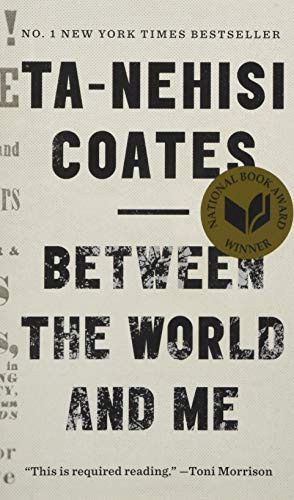Brossura
Pubblicato il 05 Settembre 2017 da Random House LCC US.

Brossura
Pubblicato il 05 Settembre 2017 da Random House LCC US.
Between the World and Me is a 2015 nonfiction book written by American author Ta-Nehisi Coates and published by Spiegel & Grau. It is written as a letter to the author's teenage son about the feelings, symbolism, and realities associated with being Black in the United States. Coates recapitulates American history and explains to his son the "racist violence that has been woven into American culture." Coates draws from an abridged, autobiographical account of his youth in Baltimore, detailing the ways in which institutions like the school, the police, and even "the streets" discipline, endanger, and threaten to disembody black men and women. The work takes structural and thematic inspiration from James Baldwin's 1963 epistolary book The Fire Next Time. Unlike Baldwin, Coates sees white supremacy as an indestructible force, one that Black Americans will never evade or erase, but will always struggle against.
The novelist Toni Morrison wrote …
Between the World and Me is a 2015 nonfiction book written by American author Ta-Nehisi Coates and published by Spiegel & Grau. It is written as a letter to the author's teenage son about the feelings, symbolism, and realities associated with being Black in the United States. Coates recapitulates American history and explains to his son the "racist violence that has been woven into American culture." Coates draws from an abridged, autobiographical account of his youth in Baltimore, detailing the ways in which institutions like the school, the police, and even "the streets" discipline, endanger, and threaten to disembody black men and women. The work takes structural and thematic inspiration from James Baldwin's 1963 epistolary book The Fire Next Time. Unlike Baldwin, Coates sees white supremacy as an indestructible force, one that Black Americans will never evade or erase, but will always struggle against.
The novelist Toni Morrison wrote that Coates filled an intellectual gap in succession to James Baldwin. Editors of The New York Times and The New Yorker described the book as exceptional. The book won the 2015 National Book Award for Nonfiction and was a finalist for the 2016 Pulitzer Prize for General Non-Fiction.